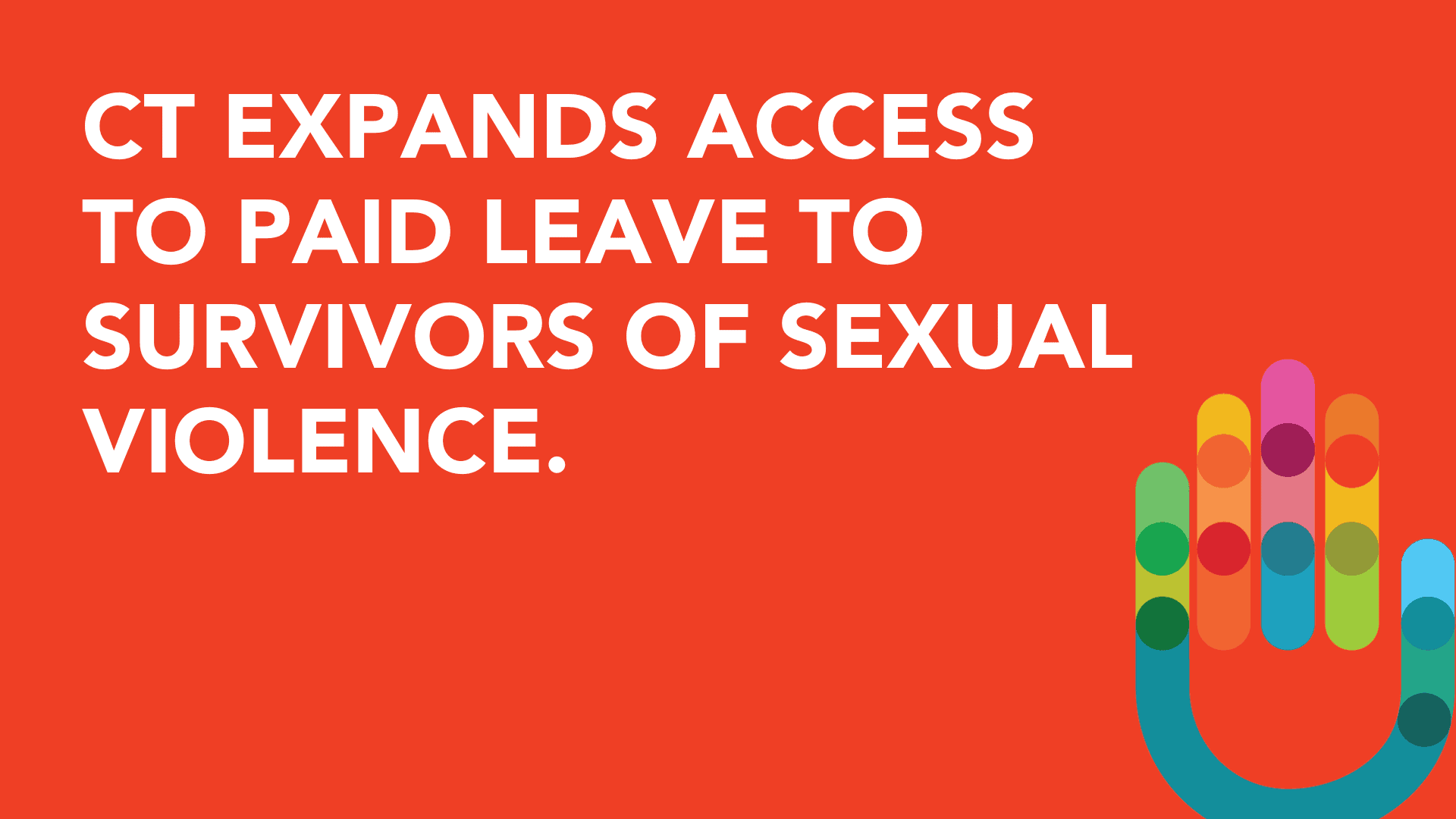By Beth Hamilton, Executive Director
This article was originally published in the CT Mirror.
Sexual violence is hard to talk about, which makes it difficult for survivors to seek and receive support. The survivors our coalition works with share that they rarely get the support and assistance they need to heal, seek care, or participate in the criminal justice process.
During the 2024 legislative session, The Alliance to End Sexual Violence worked with legislators, survivors, advocates and allies to pass legislation increasing the rights of survivors of sexual violence to create parity with the benefits available to victims of domestic violence.
One of the policy wins we are celebrating this summer is an amendment to the Connecticut Paid Leave program, which was created in 2019, to include victims of sexual assault and sexual violence.
Senate Bill 222, which became law when it was signed by Gov. Ned Lamont on May 9, broadens the state’s family violence leave law, which was previously only accessible to victims of domestic violence, to also allow leave for sexual assault victims. This means that victims of sexual violence can take up to 12 unpaid days off per calendar year for reasons related to the sexual assault including to seek medical or psychological care, to obtain services from a victim services organization, to relocate, or to participate in a civil or criminal proceeding.
Connecticut’s Paid Leave program supports survivors’ long-term wellbeing while ensuring economic stability for their families with corresponding income replacement benefits.
For more than 40 years, the Alliance has provided comprehensive, victim-centered and trauma-informed services to child, adolescent and adult survivors of sexual violence across our state, many of whom struggle with significant emotional and physical burdens in the aftermath of the assault that can impact every facet of their lives including their employment. The new law ensures that survivors can step away from work to support their healing and participate in the criminal justice process.
According to Workplaces Respond to Domestic and Sexual Violence, interviews with sexual assault victims revealed that 36% experienced symptoms of depression, anxiety and PTSD that interfered with their ability to work effectively. The ability to seek support and care following sexual violence can significantly decrease negative long-term mental and physical health outcomes for survivors, as well as increase employee satisfaction and longevity.
The CT Paid Leave Authority reports having already helped over 117,000 workers, and this expansion means even more of Connecticut’s workforce will be able to seek income replacement benefits for qualifying reasons. Connecticut’s newly improved paid leave law is already changing the lives of sexual violence survivors across our state and, along with other newly enacted policies, increasing the likelihood that survivors have access to the interventions, resources, and support they deserve.

